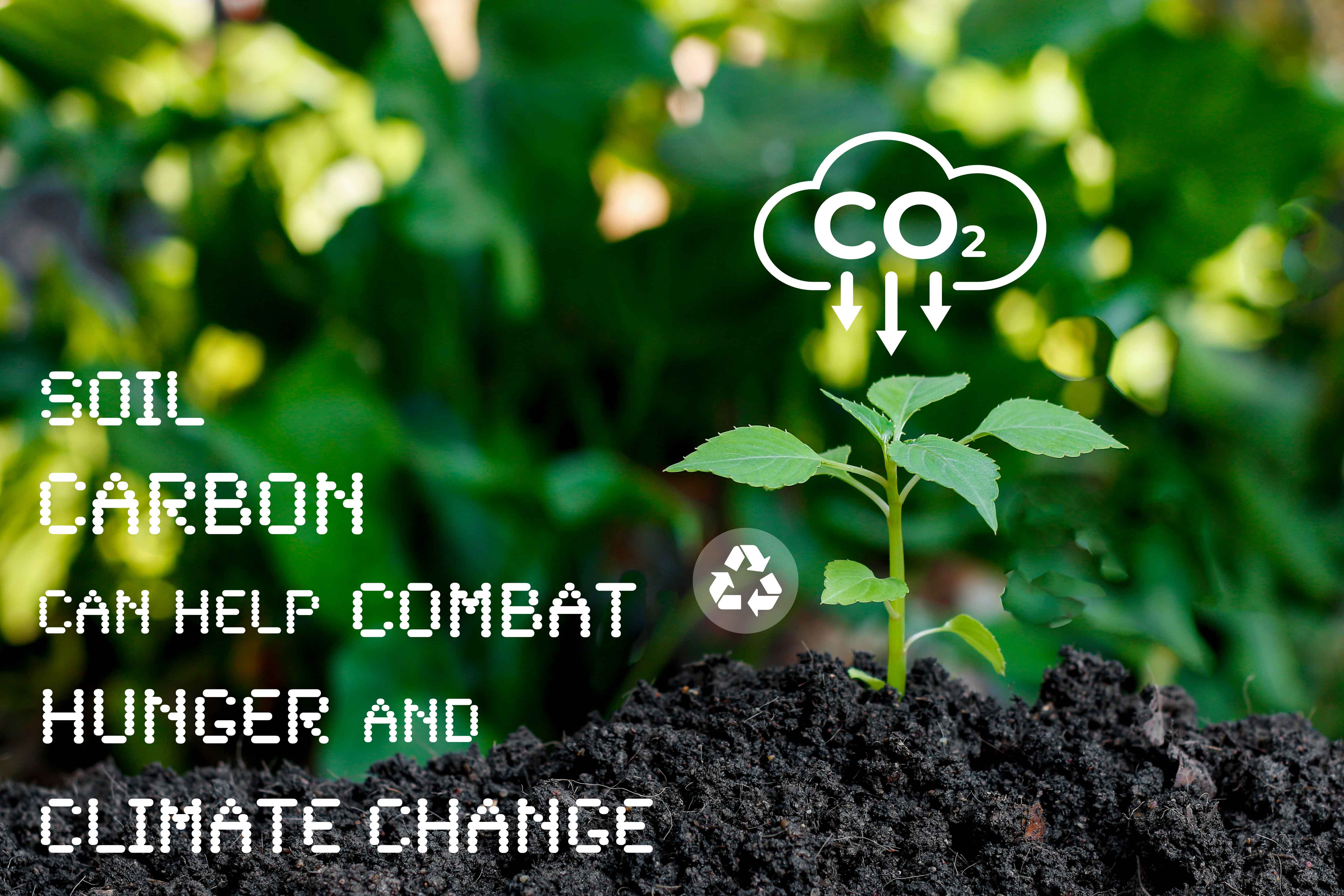
Bio.SoilZ is leading the Global shift from Chemical farming to Carbon farming — where every reactivated microbe plays a vital role in helping capture, store, and stabilize carbon in the soil, rebuilding ecosystems, and rewarding farmers through verified carbon credits. Turning regeneration into revenue, and agriculture into a force for climate restoration. Carbon farming refers to agricultural practices that capture and store atmospheric carbon dioxide in soil and vegetation. It converts conventional farms—often net emitters—into net carbon sinks.
For decades, conventional agriculture has relied on a cycle of chemical inputs that deplete soil life, emit potent greenhouse gases, and trap farmers in a system of high costs and diminishing returns.
Chemical fertilizers are a major source of greenhouse gas emissions—both during their manufacture and use. Most synthetic fertilizers, especially nitrogen-based ones such as urea and ammonium nitrate, are produced through the Haber–Bosch process, which combines atmospheric nitrogen with hydrogen derived mainly from natural gas. This process is extremely energy-intensive, consuming vast amounts of fossil fuels and releasing large quantities of carbon dioxide (CO₂). For every ton of nitrogen fertilizer produced, roughly 3 tons of CO₂ are emitted into the atmosphere.
Once applied to soil, nitrogen fertilizers trigger chemical reactions that release nitrous oxide (N₂O) — a greenhouse gas about 300 times more potent than CO₂ in trapping heat. Any excess fertilizer not absorbed by plants is washed away by rain or irrigation, contaminating waterways and driving further emissions of CO₂ and methane (CH₄) as organic residues decompose.
From factory to field, chemical fertilizers not only deplete soil vitality but also contribute substantially to global warming, making conventional agriculture one of the world’s largest greenhouse gas emitters.
This model is unsustainable for both the future of farming and the health of the planet. Bio.SoilZ reactivates the soil’s microorgamisms through an advanced bio-energetic process that restores microbial vitality, enabling the soil to once again function as a living ecosystem and as a powerful carbon sink.
Bio.SoilZ revolutionizes carbon sequestration by reactivating dormant soil microbes—the natural engines of carbon capture. Through advanced bio-energetic activation, Bio.SoilZ restores microbial vitality, enabling them to decompose organic matter, build stable soil organic carbon, enhance soil structure, and optimize photosynthesis-driven carbon flow from plants to soil. This process naturally transforms farmland into a living carbon sink—sequestering carbon by default—while simultaneously improving soil fertility, water retention, and nutrient cycling. More than just a soil health solution, Bio.SoilZ is a catalyst for achieving Net Zero Agriculture. By reducing dependency on synthetic fertilizers—the major source of nitrous oxide (N₂O) and carbon dioxide (CO₂) emissions—Bio.SoilZ lowers greenhouse gas emissions while enhancing productivity. As a result, farmers benefit from healthier soils, reduced input costs, higher and more resilient yields, and the opportunity to earn carbon credits. This regenerative cycle enriches soil, conserves water, minimizes food loss, and empowers farmers to adopt sustainable, organic, and climate-resilient practices—turning agriculture into a powerful force for environmental restoration and sustainable prosperity. This process not only reduces greenhouse gas emissions but also creates additional source of income for farmers through carbon credit programs.
This transformation goes far beyond replacing fertilizers — it’s about redefining agriculture as a living system that heals the planet.
By empowering farmers to regenerate their soils, Bio.SoilZ transforms fields into natural carbon sinks, each hectare contributing to a healthier planet. As the microbial network strengthens, soils regain fertility, water retention improves, and crops grow stronger and more resilient—delivering higher yields without chemical dependency.
Bio.SoilZ is more than a product; it’s a movement toward regenerative prosperity. It unites science, sustainability, and social impact—enabling farmers to lead the global fight against climate change while increasing productivity and profitability.
Because every reactivated microbe brings us one step closer to a Net-Zero Agriculture — where farming captures more carbon than it emits and becomes a true ally of the climate.